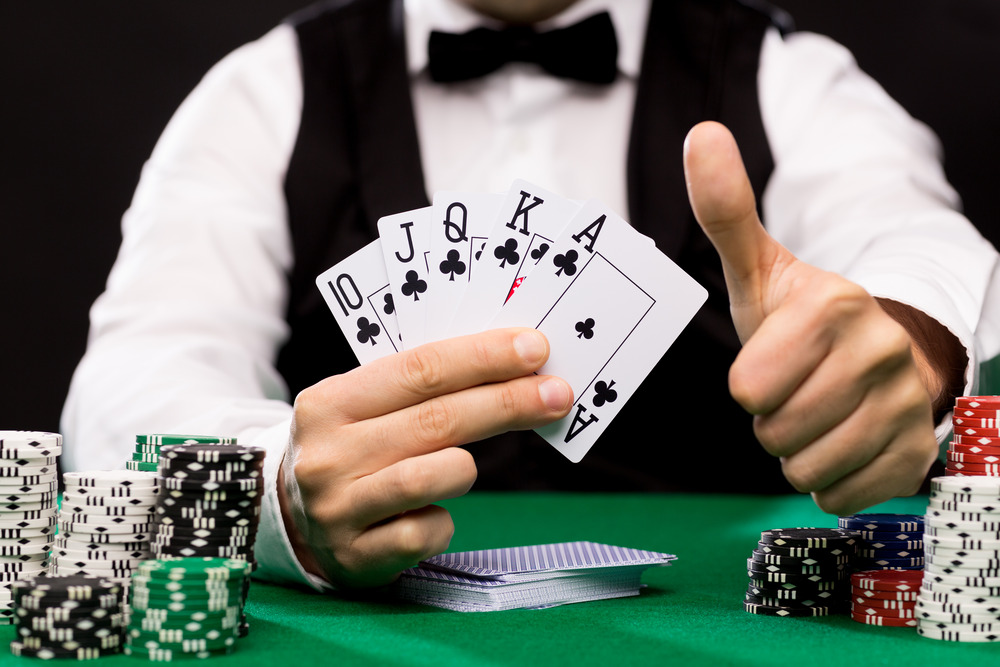Understanding the House Edge in Popular Casino Games
The concept of the house edge is fundamental in casino games, influencing the odds of winning or losing. It represents the statistical advantage the casino holds over players, ensuring long-term profitability.
Understanding the house edge is essential for making informed decisions while gambling. By knowing the house edge of each game, players can strategize and potentially optimize their outcomes. This knowledge can lead to a more calculated approach to playing casino games, enhancing the overall experience for players seeking to make informed choices.
What Is the House Edge?
When entering a casino, one fundamental concept to grasp is the house edge. The house edge represents the statistical advantage that the casino holds over players in each game. This advantage is a predetermined margin that enables casinos to generate profits over time.
In essence, the house edge signifies the portion of each bet that the casino expects to retain as earnings. For instance, if a game displays a 5% house edge, the casino foresees keeping $5 out of every $100 wagered.
Understanding the house edge is essential as it empowers individuals to make informed choices about the games they engage in. By comprehending the house edge, players can opt for games offering improved odds, thereby enhancing their potential for success.
House Edge in Blackjack
The house edge in Blackjack is an important factor to consider when playing this popular card game. It typically ranges from 0.5% to 1%, making Blackjack one of the casino games with a relatively low house edge. This percentage can vary depending on the specific rules of the game and the player’s strategy.
Utilizing basic strategy can significantly reduce the house edge in Blackjack, giving players a better chance of winning in the long run. It’s essential to make decisions based on probability and statistics rather than intuition to optimize your gameplay and minimize losses.
One common pitfall to avoid is engaging in side bets in Blackjack, as these often come with a higher house edge compared to the main game. By sticking to the core gameplay and employing sound strategy, players can improve their odds and potentially increase their profitability in Blackjack.
House Edge in Roulette
Shifting from the strategy-focused game of Blackjack to the chance-driven Roulette wheel, grasping the concept of the house edge is crucial for informed decision-making during gameplay.
In Roulette, the house edge varies depending on the type of bet placed. American Roulette and European Roulette are the two most common versions, each with its own house edge.
American Roulette typically carries a higher house edge due to the presence of an extra double zero on the wheel, increasing the advantage for the house. Conversely, European Roulette features a lower house edge as it lacks the double zero.
Understanding the odds and potential payouts associated with different bets can aid in devising strategies to potentially mitigate the house edge in Roulette. Check out our article about the differences between American and European roulette.
House Edge in Slots
Slots, commonly found in casinos worldwide, are appreciated for their straightforward gameplay and entertainment value. In terms of the house edge in slots, several key considerations should be kept in mind:
-
Varied House Edge: The house edge can differ among slot machines, necessitating an understanding of the specific game’s odds before playing.
-
Higher Denominations, Lower Edge: Typically, slot machines with higher denominations boast a lower house edge in comparison to penny slots.
-
Impact of Progressive Jackpots: While slots featuring progressive jackpots may offer substantial payouts, they often come with a higher house edge attached.
-
Return to Player (RTP): The Return to Player percentage serves as an indicator of the portion of wagered money that the slot machine is expected to pay back over time.
I recommend our article Understanding the Role of RNGs (Random Number Generators) in Slots to learn more.
Strategies to Mitigate House Edge
Implementing effective strategies is crucial to enhance your success in popular casino games and mitigate the impact of the house edge. In blackjack, mastering basic strategy can notably reduce the house edge. This involves making decisions on hitting, standing, doubling down, or splitting based on your hand and the dealer’s upcard.
For roulette, opting for outside bets like red/black or odd/even offers more favorable odds compared to riskier inside bets.
When playing craps, concentrating on pass line and come bets while utilizing odds can help minimize the house edge.
Furthermore, in baccarat, placing bets on the banker carries a lower house edge than betting on the player. By incorporating these strategic tactics, you can increase your chances of success in a variety of casino games.
Conclusion
Having a solid grasp of the house edge in popular casino games such as Blackjack, Roulette, and Slots is essential for making informed decisions while gambling. Understanding the probabilities and adopting strategic tactics can help reduce the impact of the house edge and potentially improve your outcomes. It’s important to approach gambling responsibly, utilizing knowledge and thoughtful choices to optimize your chances of winning. Enjoy the excitement of the games while being mindful of the strategies that can enhance your overall experience. Best wishes for a successful gaming session!

